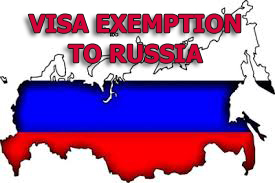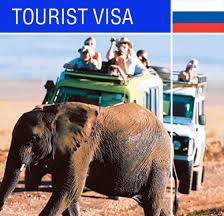As you’d expect Russia’s climate is hugely dependent on where in the country you find yourself. With temperatures known to hit a tarmac-melting 37°C (99°F) in the cities and fall to -30°C (-22°F) and lower during the Siberian winter, there’s no point generalising about Russia’s weather except to say, be prepared.
The most favourable temperatures are found along the Baltic coast, where many Muscovites decamp for balmy summer holidays, whilst the site of the 2014 Winter Olympics, Sochi, also doubles as a beach resort, due to its tropical climate, earning it the epithet ‘Florida of Russia’. Minus the overly tanned pensioners of course.
While the notion of visiting a snow-blanketed Moscow or St Petersburg has a definite romance, most tourists prefer to come calling in the warm summer months of June, July and August. This means the shoulder seasons of April, May, September and October are good options for visitors keen to avoid the peak crowds – prices are generally lower from September to May, and tourist sites almost invariably less crowded.
Spring is often characterized by slushy roads. And if your heart’s set on that winter wonderland, December’s the best bet. Seasonal climates apply elsewhere in Russia – Siberia can have devastatingly cold winters, while its summers are generally fairly pleasant, if a little rainy. The region of Russia near the Black Sea has mild winters, but again attracts a fair amount of rain.
TOURISM

Russia is at once breathtaking and baffling. Winston Churchill’s much-quoted line that the world’s largest nation represented “a riddle wrapped in a mystery inside an enigma” is as true today as it was back then.
Monumental in every respect, it’s a land where burnished imperial splendour coexists with icy Siberian tundra, where timeworn Soviet-era monuments backdrop uber-hip urban cultures and where everything from the ruling party downwards functions in its own, impenetrably Russian, way.
The west of the country draws the most visitor attention, thanks to the presence of two extraordinary cities. St Petersburg and Moscow serve up sweeping postcard sights by the dozen. Moscow is the rapidly beating heart of the “New Russia,” where Asia and Europe combine to create a boisterous, enigmatic metropolis on a grand scale. St Petersburg, meanwhile, with its living film-set of palaces, cathedrals and waterways, is the grandest and most European of Russia’s cities, yet still retains a deeply complex character.
Exploration beyond these two main hubs, however, is well advised. The Golden Ring, a collection of ancient towns northeast of Moscow, still has plenty of period architecture and is easily accessed from the capital. By cruising along the mighty River Volga, meanwhile, it’s possible to travel south towards the Caspian Sea and see the country beyond its increasingly westernised veneer. And those heading east, into Siberia, will find a land of varied, often sublime natural beauty. From Lake Baikal to the old imperial city of Irkutsk, and from the mountains of the Altai and the shamans of Tuva, Siberia has many secrets.
A combination of the above is drawing an increasing number of tourists to the Russian Federation – that it remains as obscure and mysterious as ever is all part of the charm. As the poet Fyodor Tyutchev once said: “Russia cannot be understood.”
CULTURE
Religion:
Mainly Christian with the Russian Orthodox Church being the largest Christian denomination. Muslim, Buddhist and Jewish minorities also exist.
Social conventions:
It is customary to shake hands when greeting someone, though never across a threshold. Company or business gifts are well received; if you’re invited to someone’s home do bring a token gift, but avoid clearing your plate when eating; leaving some food is considered as a good sign.
Conservative wear is suitable for most places – women will need to cover shoulders and wear long skirts to enter an orthodox church – and the seasonal weather should always be borne in mind. Smoking and drinking is widely acceptable, but the former has been prohibited in restaurants and cafes since 2014.
Russian society is still highly patriarchal and hierarchical; this may be reflected in chivalrous acts (men holding doors open for women for example) but it may also mean that women are taken less seriously, and engaging in ‘unfeminine’ behaviour may be interpreted wrongly, although being a visitor may get you some leeway. Be careful with gestures – in Russia, giving the ‘thumbs up’ sign is an insult not an ‘OK’.
It is prohibited to take photographs of any military installation and/or establishments or sites of strategic importance. Failure to abide by this could result in police arrest.
LANGUAGE
Russian is the official language, although there are over 100 other languages. English is widely spoken by younger people as well as some educated older people.
Language phrases:
Beer = Peeva
Closed = Zakrity
Danger = Apásnost
Do you speak English? = Gavaritye pa anglisski?
Doctor = Vrach
Eight = Vosyem
Eighty = Vightysyat
Entrance = Vxot
Exit = Víxod
Fifty = Pyetdesyát
Five = Pyat
Forty = Sorty
Four = Chetíriye
Friday = Pyátneetsa
Goodbye = Do svidanya
Hello = Zdrástvuitye
Hotel = Gastínitsa
How are you? = Kak vi pazhivayetye?
How much does it cost? = Skolka stoyit?
I’m very well = U minya xarasho
I don’t understand = Ya ne panimayu
I feel ill = Ya bolyen (male) / ya bolna (female)
Menu = Minú
Monday = Panedyélnik
My name is … = Minya zavoot …
Nine = Dyévyat
Ninety = Divyansyat
No = Nyet
One = Adeen
One Hundred = Sto
One Thousand = Tísicha
Open = Atkrity
Please = Pazhawsta
Restaurant = Ristorán
Saturday = Suobrday
Seven = Syem
Seventy = Syémdyesyat
Six = Shest
Sixty = Shistdyesyát
Sunday = Vaskresyénye
Ten = Dyésyat
Thank you = Spassíba
Thirty = Trítset
Three = Tri
Thursday = Chetvyérk
Today = Sivay án
Toilets = Tualyet
Tomorrow = Zavtra
Tuesday = Vtesday
Twenty = Dvátset
Two = Dva
Wednesday = Sryedá
Where is …? = Gdye …?
Wine = Vine
Yes = Da






